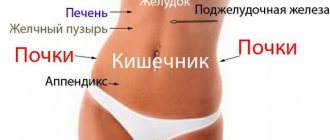A lump in the throat causes a pressing feeling of lack of air and interferes with the swallowing reflex. A person experiences heartburn, sore throat, and cough. Sometimes this symptom is associated with pain in the back of the head and numbness in the arms and legs. The symptoms are caused by the penetration of an excessive amount of air into the body; the stomach accumulates excess gases inside itself, which leads to increased pressure inside it. To get rid of the resulting load, the muscle begins to contract, the sphincter relaxes, resulting in unpleasant symptoms of belching air and the sensation of a foreign body in the oropharynx and esophagus.
The patient often complains of difficulty swallowing, tries to swallow a lump in the throat, but as a result, the obstruction remains in place and air escapes from the mouth. Constantly haunted by the feeling of finding a foreign body. A person often does not feel pain; there is a feeling of neck compression, sometimes partial suffocation. Accompanied by a burning sensation in the oropharynx. If you notice any of the following symptoms, be sure to consult a doctor:
- Feeling of constant pressure in the neck area.
- Feeling of a moving lump at the beginning of the esophagus.
- Difficulty swallowing saliva.
- A tickling sensation, as if the mucous membrane had been scratched.
- It seems that swallowing does not go completely and comes back unfinished.
- The desire to constantly swallow when there is no such need.
- It is difficult to swallow food of different densities alternating between liquid, solid, then liquid again.
There is a widespread belief that the occurrence of belching and the feeling of a coma are completely natural phenomena, caused by human physiology. But often the sensations cause a lot of inconvenience, put a person in an awkward position, make it difficult to eat, and cause a sharp cough. If the symptoms are chronic and are observed constantly, you need to urgently consult a doctor to avoid complications, since what is happening is a sign of other serious diseases.
Causes of a lump in the throat
The factors causing the phenomenon are varied:
- Inflammatory processes in the oral cavity and nasopharynx due to the high growth of bacteria are accompanied by acute pain when swallowing and a feeling of a lump in the throat - ARVI, sore throat, laryngitis, tonsillitis, pharyngitis.
- Allergies to various medications, which may cause swelling. Some drugs can irritate the lining of the esophagus, causing pain in a person.
- Endocrine disease of the thyroid gland - thyroidin, diffuse toxic goiter.
- Stress, emotional overload, causing spasm. Depressive, asthenic conditions. Often the cause is acclimatization.
- Displacement of the cervical vertebrae due to osteochondrosis, due to which a person experiences difficulty swallowing, headaches, dizziness, pain in the spine and neck.
Displacement of the cervical vertebrae - Injury caused by swallowing a foreign object, resulting in swelling.
- Oncological diseases that cause tumors.
- During pregnancy, symptoms can be caused by hormonal changes in the body, due to which women suffer from nausea, a feeling of coma, vomiting, lower back pain, and heaviness in the stomach.
- Disorders of the Central Nervous System (CNS) - accompanied by neck pain, numbness of the arms, legs, fingers, tremors of the limbs, tinnitus.
Why does belching bother me?
Belching, the causes of which are very numerous, is the release of gas accumulated in the stomach, sometimes with a small amount of contents.
It may just come out as air or with a rotting smell (rotten egg burps) or a sour or bitter taste. Belching air may not be related to the disease. Severe belching and bloating, for example, appear due to carbonated drinks. A common reason why a healthy person belches air is aerophagia. With this phenomenon, air can accumulate in the stomach due to food swallowed in a hurry, when talking while eating, or overuse of chewing gum. This reason is especially typical for children who chat and eat quickly at the same time. In adults, smoking is added to this.
Constant belching of air, heaviness after eating, heartburn can occur during pregnancy, when the pressure in the abdominal cavity increases due to the growing uterus. In addition, belching and heartburn begin with significant physical activity immediately after eating.
Accompanied by belching:
- diseases of the liver, gallbladder, pancreas (hepatitis, cholecystitis, stones, diarrhea, pancreatitis);
- diseases of the stomach and intestines (gastritis, duodenitis, stomach ulcers, irritable bowel syndrome);
- diseases of the esophagus.
Diseases of these digestive glands cause a decrease in the secretion of digestive enzymes and bile, which is why fats and proteins are not completely digested. This leads to the smell of spoiled food coming from the mouth. A symptom such as frequent belching of rotten eggs that begins after eating occurs. Nausea, heaviness in the stomach, and a bitter taste in the mouth may occur. Treatment consists of diet therapy, choleretic and antispasmodics.
With hepatitis, heaviness in the hypochondrium on the right, nausea, lack of appetite, bloating, and belching of air occur. Another symptom is yellowing of the skin and severe itching. With the development of cirrhosis of the liver, severe bloating appears in the abdomen, nausea, appetite disappears, heaviness and fullness are felt even after eating a light meal, the person loses a lot of weight, belching feels bitter, and an unpleasant odor and bitter taste appear in the mouth. In this case, you cannot ignore the doctor’s prescriptions; you must undergo treatment with antiviral drugs according to a specific regimen.
Chronic pancreatitis is manifested by pain in the epigastric region. There is belching after eating, bloating, and rumbling. This disease is characterized by the appearance of loose stools and a very unpleasant odor during bowel movements. Treatment is following a diet, eliminating inflammation and taking medications containing enzymes. It is important to be patient, complete treatment and not change the principles of healthy eating.
This is the most common cause of burping rotten eggs. This symptom means problems with digesting food. Constant belching, including rotten eggs, heaviness and distension of the abdomen, nausea, pain in the stomach that begins after eating, the appearance of a putrid odor can accompany atrophic gastritis, decreased secretory function. If the production of hydrochloric acid is increased, heartburn, sour belching, and stomach cramps on an empty stomach often appear.
A peptic ulcer is manifested by a sharp, burning pain in the stomach, especially on an empty stomach, nausea and vomiting, including blood, belching and loss of appetite.
With intestinal dysbiosis, dyspepsia, irritable bowel syndrome, belching, excessive gas formation, loose stools and pain along the intestines after eating occur.
FGDS and simple tests will help make an accurate diagnosis. Treatment of pathologies of the stomach and intestines also involves a strict diet. Drugs are prescribed based on the characteristics of the secretory function of the stomach, the presence of the bacterium Helicobacter pylori, the nature and degree of damage to the mucous membrane.
Other reasons
If the above diseases are absent, then such a symptom as belching with rotten eggs, as well as heaviness in the stomach, nausea and bloating is most likely a sign of banal overeating and abuse of excessively fatty, heavy foods (legumes, cabbage, fatty pork, butter creams and etc.). Heaviness in the stomach, nausea and belching occur in those who smoke on an empty stomach.
Belching of rotten eggs can begin with lactase deficiency, when after drinking milk there is rumbling in the stomach, nausea, bloating and flatulence, and loose stools.
The air leaving the digestive tract causes the belching reflex. This reflex occurs on its own and does not cause concern. But when belching is repeated frequently, does not depend on food intake and has a characteristic odor, accompanied by strong sounds, stomach pain or heartburn, there is cause for concern.
A person complains that while in society, he experiences a feeling of discomfort in the stomach, after which air suddenly comes out of the esophagus with a noise. Sometimes belching occurs due to a nervous disorder: an unpleasant conversation, stress, psychological tension. All this is a reason to go to a medical facility.
Air often escapes through the esophagus after eating. This reflex is possible for various reasons related to physiology or pathology. This opens the esophageal sphincter, located between the stomach and esophagus, and air rushes out. There is a slight belching.
Regular belching is also possible. Its causes are usually not physiological, related to digestive processes. Rather, they are pathological in nature and caused by various diseases. What exactly, only the results of a diagnostic examination can tell.
Causes of belching
The cause of air accumulated in the esophagus may be excessive swallowing or so-called aerography. Air enters the stomach when we eat and this is due to:
- conversations during meals;
- state of nervous tension;
- overeating;
- addiction to carbonated drinks;
- the presence of foreign objects in the mouth (braces, dentures);
- snacks on the go;
- pregnancy, when the uterus puts pressure on the diaphragm.
All this relates to unhealthy eating behavior and can result in more than just belching. After all, it is important not only what we eat, but also how we do it.
When there is an imbalance in nutrition and a lot of bad habits are formed that disrupt the normal digestion of food, belching is accompanied by pain. These habits include:
- Smoking after eating, when smoke enters the lungs and esophagus with air, causing it to be released back. When smoking, stomach cramps often occur after eating.
- Eating fruit as dessert. It is advisable to eat fresh fruits 1.5 hours after eating, since the organic substances of the fruit interact with semi-digested food, causing the formation of gases and bloating.
- Traditional tea drinking, when tea enzymes react with food proteins, causing a feeling of heaviness and gas formation.
- Going to the bathhouse after eating causes blood flow to the extremities and its outflow from the digestive organs. As a result, food is poorly digested and fermentation processes begin. As a result, belching is accompanied by pain in the stomach.
- Tight clothing or a belt puts pressure on the stomach while eating. At the same time, its volume is noticeably reduced and air accumulates in the esophagus. In this case, the removal of excess air is accompanied by pain.
- Drinking cold drinks after meals disrupts the digestion process: enzymes “work” more slowly, lipids (fats) are poorly absorbed.
- Sleeping after eating food also slows down the digestion process and promotes fat deposition. People who like to sleep after meals are often overweight. And subsequently they are tormented not only by belching, but also by more serious problems with the gastrointestinal tract.
All these are physiological reasons related to the functioning of our body and eating disorders, poor nutrition, and lifestyle. These reasons can be corrected on your own, without medical help.
Causes of belching air when there is a lump in the throat
A lump in the throat and belching air at the same time may indicate the following factors:
- Inflammation of the esophagus - esophagitis. With this disease, after eating, the throat feels like it is burning and burning.
- Gastroesophageal reflux is abbreviated as GERD. It occurs due to disruption of the esophagus and an increased amount of gastric juice. It is important to note that the diseases esophagitis and GERD are possible not only separately, but also simultaneously. Pathology is suspected in case of heartburn, pain, inability to swallow food or liquid.
- Thyroid disease often accompanies various types of complications in the gastrointestinal tract, the presence of different types of gastritis. With difficulties with the gastrointestinal tract, patients experience constant belching of air, in some cases with a sour, bitter taste. When the thyroid gland malfunctions, a noise occurs when swallowing, the ability to swallow food, liquid, saliva is difficult, accompanied by unpleasant sensations, the person is haunted by the feeling that food is stuck at the beginning of the esophagus.
- Cancer of the larynx, esophagus.
- Formations in the larynx, oropharynx, trachea of various sizes, and not necessarily large.
Neoplasm in the larynx
There are situations when the sensation of a lump is not caused by any pathologies. In healthy people, the cause of an unpleasant feeling is an excess of food consumed, poor nutrition, when talking, or rushing while eating. A provoking factor may be the abuse of carbonated drinks, chewing gum, and active physical exercise immediately after eating.
Rationalization of nutrition
A balanced diet is the first condition for combating air belching and a lump in the throat, since the causes of these symptoms are precisely a person’s poor nutrition over a long period of time.
Nutritionists recommend reviewing the daily menu and including only healthy foods:
- iodine-containing products (kelp or seaweed);
- vegetables (spinach is especially useful for such indications) and fruits;
- foods high in fiber;
- seafood (fish, shrimp, caviar);
- kefir, fermented baked milk, sour cream.
Must be excluded from the menu:
- fat;
- roast;
- spicy;
- smoked;
- oversalted;
- preservatives.
Diagnostics
As you can see, there are many reasons that cause discomfort; to make an accurate diagnosis, consult a therapist. After an examination, urine, blood and stool tests, as well as a series of tests, he will determine the source of the symptom and prescribe effective treatment. Often, after establishing a diagnosis, the therapist refers the patient to a specialist - otolaryngologist, gastroenterologist, neurologist, gynecologist, urologist.
The examination plan includes:
- examination of the lymph nodes, throat, thyroid gland;
- examination of the tongue, tonsils;
- laryngoscopic examination of the larynx, vocal cords;
- Ultrasound of the thyroid gland, blood test to detect thyroidin;
- X-ray, computer/magnetic resonance imaging studies of the cervical spine.
An unpleasant symptom cannot be ignored, since in severe cases the problem can provoke the development of hernias, esophageal aneurysms, or diaphragmatic openings.
Treatment
The treatment plan consists of taking medications prescribed by the doctor - antibacterial, anti-inflammatory, antiemetic, sedatives, and anti-spasm medications. Following a diet. Folk methods are considered auxiliary treatment - taking plant decoctions, sedative tinctures:
- valerian infusion;
- St. John's wort decoction;
- motherwort tincture;
- herbal teas of chamomile, mint, etc.;
- herbal preparations that have a sedative effect - Nervo-vit, Apitonus;
- herbal teas from motherwort, lemon balm, jasmine;
- aromatic baths with essential oils.
If swallowing difficulties appear due to problems in the cervical spine, physiotherapy will be effective: acupuncture, manual treatment, laser radiation.
It is important to remove the psychological burden from the patient - to alleviate tense, stressful situations, to eliminate neuroses. You need to rest more, take time for walks in the fresh air, strengthen the body’s immunity, and reduce working hours. Adequate sleep is important. In exceptionally severe cases, the psychotherapist prescribes sedatives and antidepressants.
If there is a tumor in the larynx, surgical intervention is necessary; after the operation, the doctor will prescribe drug therapy.
If the feeling of a coma occurs exclusively after eating due to poor nutrition, no medications are required. It is important to establish a rational eating regimen, eliminate harmful foods and carbonated drinks. Eat in a timely manner, slowly, chewing food thoroughly, and do not talk during this process. Try to eat foods that are easy to digest and avoid overeating.
When a lump in the throat is caused by diseases of the thyroid gland, in addition to taking medications, it is important to eliminate inflammation, replenish iodine deficiency in the body by including the following foods in the diet - any types of greens, seaweed, mussels, shrimp, squid, champignons. There is a high iodine content in beans, peas, chickpeas, and various types of cabbage (Brussels sprouts, cabbage, broccoli, cauliflower), but these products cause increased gas formation, they should be taken with caution, in moderation. For autoimmune thyroid diseases, the endocrinologist prescribes hormonal therapy.
Prevention
Following these recommendations will help prevent the occurrence of unpleasant symptoms:
- Reduce the amount of food, give up foods that do not benefit the body.
- Eat slowly, avoiding talking and rushing while eating.
- Try to eat small meals.
- Pay attention to the connection between the intake of certain foods and your well-being. By listening to your body, you can establish normal digestion.
- Quit alcohol and smoking.
- Avoid stress, try to be in a calm, balanced state.
- Try to move more, walk, avoid a sedentary lifestyle, and spend more time in the fresh air.
- Eliminate spicy foods from your daily diet.
- Do not wash down food with liquid; at least 40 minutes should pass after eating.
- Undergo a medical examination in a timely manner, especially paying attention to the digestive systems, endocrine and nervous systems. If you have already encountered belching, and a lump in your throat torments you periodically, try to consult a doctor for preventive examinations at least once a quarter.
Symptoms of esophageal dysphagia
The appearance of symptoms of dysphagia indicates a violation of the movement of the food bolus through the esophagus into the stomach cavity. The act of swallowing is complete and the patient does not experience any pain. The main complaints of patients include the lump getting stuck and bursting in the back of the sternum, which is absolutely painless. A pronounced sign of the condition is diffuse spasm of the esophagus, when the patient feels intense pain.
The main symptoms include:
- Impaired movement of food at the level of the oropharynx. The process is accompanied by the throwing of the swallowed lump into the nasal or oral cavity;
- Increased salivation (salivation);
- Feeling of suffocation;
- Cough;
- Inability to swallow food.
These symptoms develop when eating solid foods, especially in the early phases of the disease. The process of eating is simplified when the patient drinks food with plenty of water or juice. As the disease progresses, even with the help of water, the food bolus cannot be moved through the esophagus.
Depending on the cause of its occurrence, swallowing disorders are considered as a separate pathology or dysphagia syndrome for a specific disease (secondary).
The violation causes:
- Belching of food and air;
- Heartburn as a result of the return of gastric contents;
- Hoarseness of voice (dysphonia).
The sensation of a lump in the esophagus can be observed with esophagospasm. This disease is characterized by the development of uncoordinated contractions; the function of the lower esophageal sphincter is not impaired.
Among the main forms of the disease, doctors identify:
- Idiopathic esophagospasm. Due to damage to the nerve plexuses located in the intermuscular layer, a disruption of nervous regulation occurs.
- Esophagospasm of a secondary nature. Develops as a concomitant symptom of peptic ulcer, esophagitis, hiatal hernia, diabetic neuropathy.
Manifestations of esophageal spasm are pain in the chest area. They can occur both when eating food and spontaneously at rest. It is important to note: emotional stress increases the severity of pain. Patients often complain of a feeling of a lump in the esophagus lasting from seconds to 20-30 minutes.











